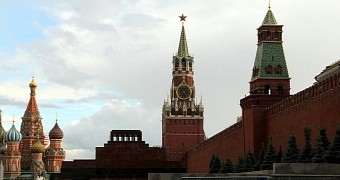The Russian Duma is putting together its own demonic version of the EU's Right to Be Forgotten law which, as you'd expect, is packed with clauses that help politicians clean up their names.
While the EU's Right to Be Forgotten law was first treated with doubt and distrust, the way the law was written gave Google and other search engines the power to decide who could be erased from their search results and who could not.
This kept the ruling power out of the hands of local governments and gave it to a fair arbiter like the search engine itself.
While Google only approved 40% of all requests to be forgotten in the EU, proving to be an impartial partner, you can't expect the same result from the upcoming Russian law, which gives this power to one of its own agencies.
Roskomnadzor, or Federal Service for Supervision in the Sphere of Telecom, Information Technologies and Mass Communications, is exactly what you think it is: a censorship authority.
This is for the citizens. Right Russia?
If we learned something about Russia by now, it is that this agency will have absolutely no qualms in enforcing rulings that aim to clean up the history and image of all Putin-friendly politicians.
Why are we so sure and absolute in our criticism of Russia's upcoming law? Because only last weekend, The New York Times broke a story in which one of its reporters exposed just one of the many government-controlled troll farms, secret agencies that act on the Web, disseminating false stories, attacking the opposition's politicians, and spiffing up Putin's image inside Russia's borders.
This type of behavior makes it hard for anyone to believe that this new law is nothing than another attempt at putting a muzzle on the Internet, and censoring material that might prove detrimental to Russia's current political regime.

 14 DAY TRIAL //
14 DAY TRIAL //